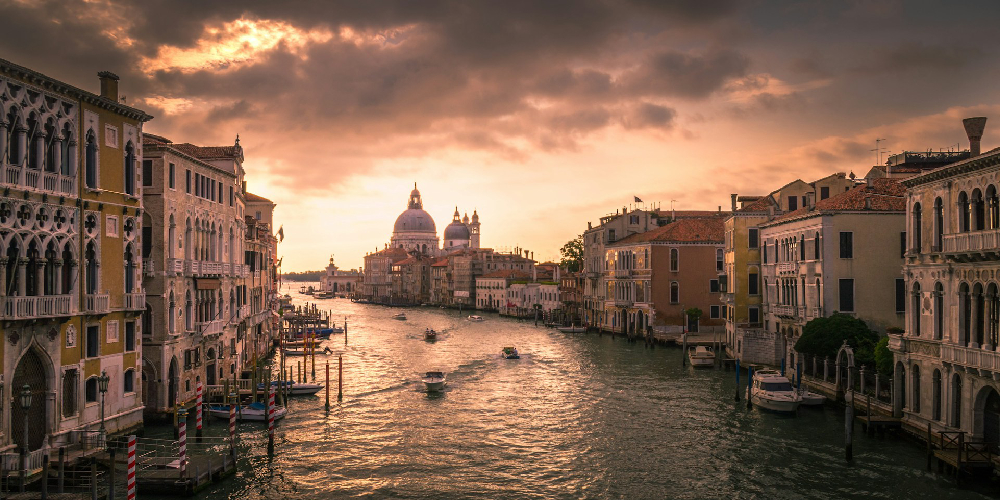Study Destinations

Italy hosted some of Europe's earliest universities. The University of Bologna, established in 1088, is the world's oldest continuously operating university. Today, Italy boasts several renowned higher education institutions. Many Italian universities consistently rank among the top 200 in the QS World University Rankings each year.
Italy has been a leading force in higher education reforms, notably through the "Bologna Process." As one of the four founding members of the European Higher Education Area, the country has played a pivotal role in shaping modern educational standards across Europe.
Established in 1998 with the signing of the Sorbonne Declaration, the Bologna Process marked the first significant step towards higher education reform. Today, this framework is being progressively implemented across Europe, aiming to standardize and enhance academic systems continent-wide.
Around 97 universities exist in Italy, which are split into numerous categories:
Additionally, Italy hosts 137 other higher education institutions, specializing in various fields. These include academies dedicated to art, music, and dance, as well as research and technical schools.
Italy offers a diverse range of higher education degrees. Bachelor's studies typically lead to master's programs and degrees. Bachelor's degrees generally require three years of study, while master's degrees typically take one year to complete. Following a master's degree, students can pursue a PhD, which typically involves three years of advanced study and research.
While the majority of courses and programs in Italy are taught in Italian, there is a growing availability of English-language programs. This means that if your Italian language skills are not yet proficient, you may still find opportunities to pursue English-taught classes.
Italy, situated in southwest Europe on the Apennine peninsula, is known for its beauty and rich cultural heritage. The country offers a wide range of higher education opportunities. Bachelor's programs can lead to master's degrees, which typically take three years to complete. Master's degrees require one year of study, and after obtaining a master's degree, students can pursue a PhD, which generally lasts for three years.
Italy comprises mainland Italy and its surrounding islands. The country extends near the coastlines of North Africa in the south.
Italy appeals to everyone with its blend of beautiful ancient cities, stunning Mediterranean coastlines, and breathtaking natural landscapes. Renowned for its delectable cuisine, fine wines, and passionate people, Italy also ranks among the world's eight most industrialized nations. It hosts numerous global corporations and leading scientific institutions. With a rich cultural heritage and a wealth of World Heritage Sites, Italy offers visitors a glimpse into its vibrant history and cultural legacy.
Additionally, Italy hosts 137 specialized higher education institutions, including academies dedicated to art, music, dance, and research and technical schools.
Italy offers diverse higher education opportunities. Bachelor's programs can progress to master's degrees, typically lasting three years for a bachelor's and one year for a master's. Afterward, a PhD program, which typically spans three years, is an option for further academic pursuit.
While most courses are conducted in Italian, there is an increasing availability of programs taught in English across Italy. This allows students with less proficiency in Italian to find English-language classes.
Education costs in Italy vary but are often lower compared to other European or North American countries. This affordability makes Italian universities attractive to international students seeking high-quality education at a reasonable price.
Tuition fees vary between institutions. Attending a private university generally incurs higher costs. In public universities, annual fees for a bachelor's degree range from €900 to €4,000. Private institutions typically charge between €6,000 and €20,000 per year on average. EU or EEA nationals usually pay fees similar to Italian students. Non-EU/EEA international students may expect higher tuition fees.
Various funding options are available to support your studies. Both Italian and international students can apply for financial aid, which is awarded based on financial need and academic achievement. If granted, this assistance can help cover tuition fees, housing costs, and other living expenses, potentially reducing your overall financial burden. For details regarding the financial aid opportunities offered by your chosen institution, it's advisable to reach out to them directly.
In Italy, residential facilities are generally not available within institutions. However, they do offer support services to help you find appropriate accommodation. Options vary from university-managed housing to aiding in locating suitable private rentals. Renting a private apartment in Italy tends to be more costly, so it's essential to consider this when planning your trip.
Securing a part-time job is a great way to boost your finances while studying in Italy. EU students can work without needing additional authorization. Non-EU students' visa conditions dictate their work eligibility while studying. Typically, non-EU students are allowed up to 20 hours of work per week, though it's not advisable to rely on this income to cover educational expenses. Proficiency in Italian could enhance your job prospects if you decide to seek employment.
International students aspiring to study in Italy can apply for scholarships and grants on par with domestic students. Financial assistance considers both the student's financial need and academic achievements. This applies across various forms of support, including student loans, tuition waivers, and living stipends. Additionally, your chosen institution may offer specific financial aid opportunities for international students. For detailed guidance and further details, contacting the institution directly is recommended as they can provide comprehensive assistance and answer specific queries.
Whether you need a visa to study in Italy depends on your nationality. Students from EU or EFTA countries (Iceland, Liechtenstein, Norway, or Switzerland) do not need a visa. However, students from other countries will need a visa. All students must demonstrate proof of residence, financial stability, and comprehensive health insurance.
After obtaining a visa, non-EU or EFTA students must apply for a residence permit within the first eight days of arriving in Italy. This process can be initiated at the local post office in your new city. Your school will provide assistance and address any queries you may have regarding the application procedure.
EU or EEA students are not required to apply for a residence permit in Italy. However, if your stay exceeds three months, you must register with the Anagrafe (registration office) at your place of residence. If Italy is not your permanent residence, you can register as a temporary resident, with the requirement to renew annually if you continue this status. You also have the choice to establish Italy as your permanent residence.
EU students intending to study in Italy for more than three months must enroll with the Italian National Health Service (SSN) to access full healthcare benefits. Registration can be completed at your local health authority (ASL). There are no fees involved, and you will receive a health insurance card (Tessera Sanitaria), granting you access to the same healthcare services as Italian citizens.
To apply for a residence visa, non-EU students must have health insurance. International students have three options for health coverage.

Italian being the national language of Italy, learning an additional language presents a valuable opportunity. Having proficiency in multiple languages enhances your resume. If your program is conducted in Italian, you must demonstrate your language proficiency. Many universities offer language courses to assist students who need to improve their skills or lack formal documentation. Moreover, an increasing number of courses are taught in English alongside Italian offerings. It's essential to meet the minimum English proficiency requirements for your chosen course and universities often provide language support classes to help you meet these standards. Regardless of your language of instruction, embracing the local culture and traditions enriches your experience. Engaging with locals and learning Italian can greatly enhance your time in Italy and boost your career prospects.
Rome, the capital of Italy, boasts a population of approximately 4.3 million people, making it the fourth most populous city in the EU. With a history spanning 28 centuries, Rome stands as one of Europe's oldest continuously inhabited cities. Its historic center, home to landmarks like the Colosseum and the Vatican, is recognized as a UNESCO World Heritage Site. Rome appeals to international students for its rich cultural heritage and diverse offerings. It serves as a global hub for higher education, hosting numerous universities, colleges, and academies across various disciplines. Notable institutions include La Sapienza, one of the world's largest universities with over 140,000 students, along with the Istituto Europeo di Design, Scuola Lorenzo de' Medici, and Rome Business School.
Milan, with a population just over 1.3 million, ranks as Italy's second most populous city after Rome. Renowned for its strengths in finance, design, and fashion, Milan stands as a global center for these industries. It hosts Milan Fashion Week, a pinnacle event in the fashion world, and attracts millions of tourists annually to its numerous art galleries and museums. These institutions house some of the world's most significant art collections, including works by Leonardo da Vinci. Milan boasts 14 higher education institutions offering diverse courses. Bocconi University, established in 1902, is internationally acclaimed for its business education. Additionally, the city is home to institutions like the New Academy of Fine Arts and the European Institute of Design.
Florence, the capital of Italy's Tuscany region, has been a UNESCO World Heritage Site since 1982, acclaimed by Forbes as one of the world's most beautiful cities. Known as the cradle of the Renaissance, Florence boasts a rich political history marked by the dominance of the Medici family. The city is renowned for its museums, art galleries, and magnificent architecture. It hosts institutions such as the University of Florence, Florence University of the Arts, and Polimoda International Institute of Fashion Design and Marketing. With its diverse educational offerings, Florence promises something for everyone.